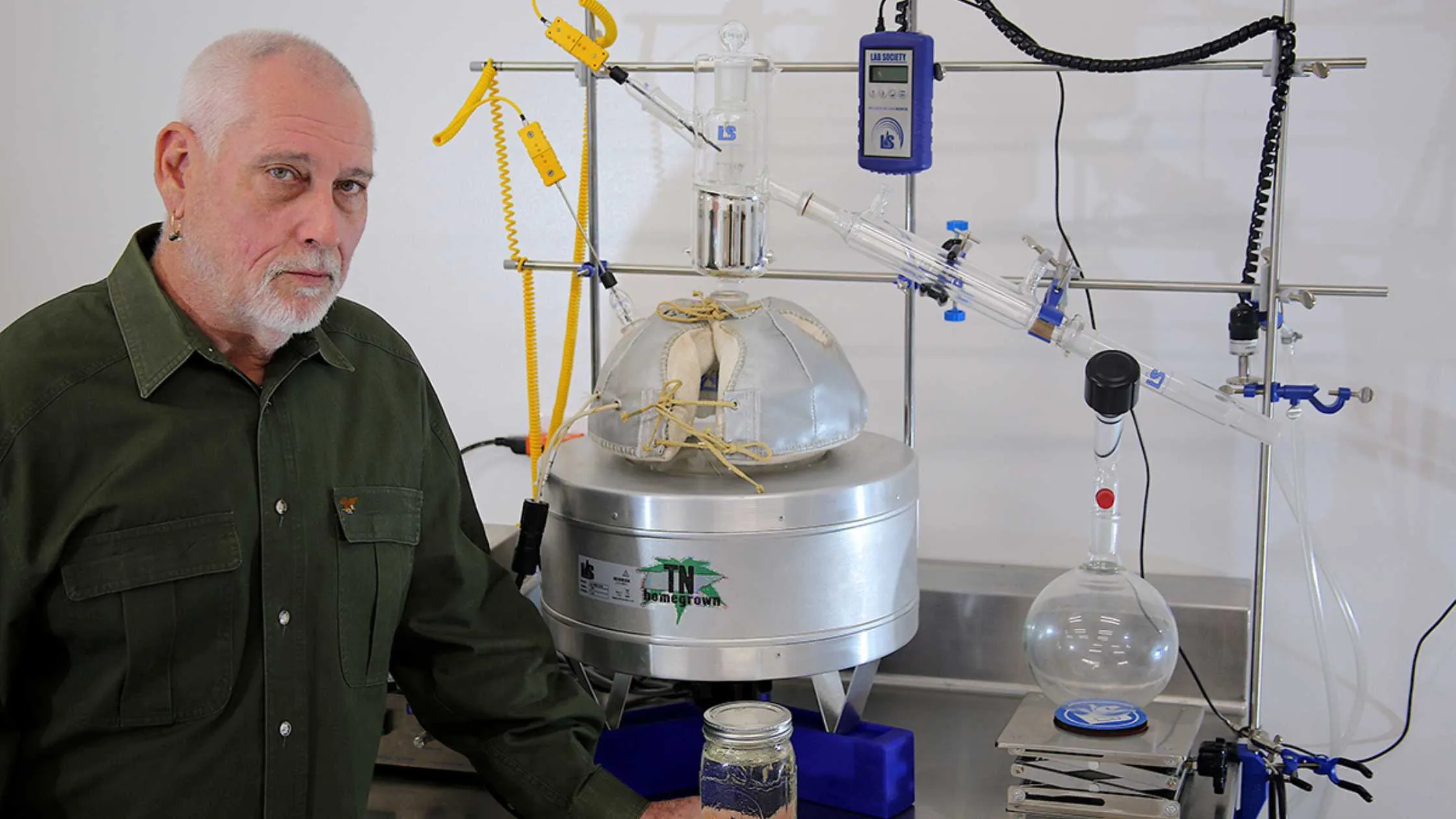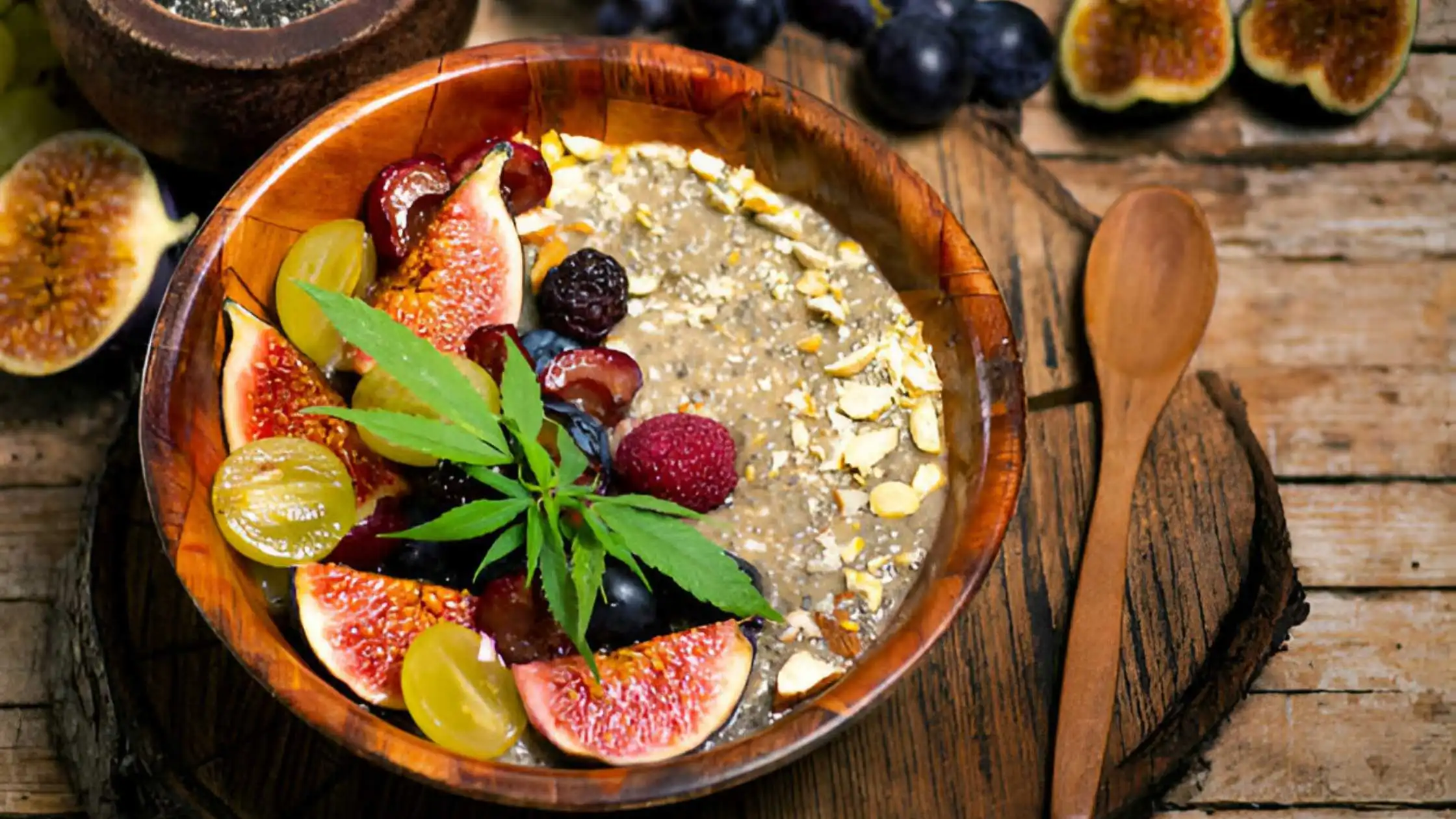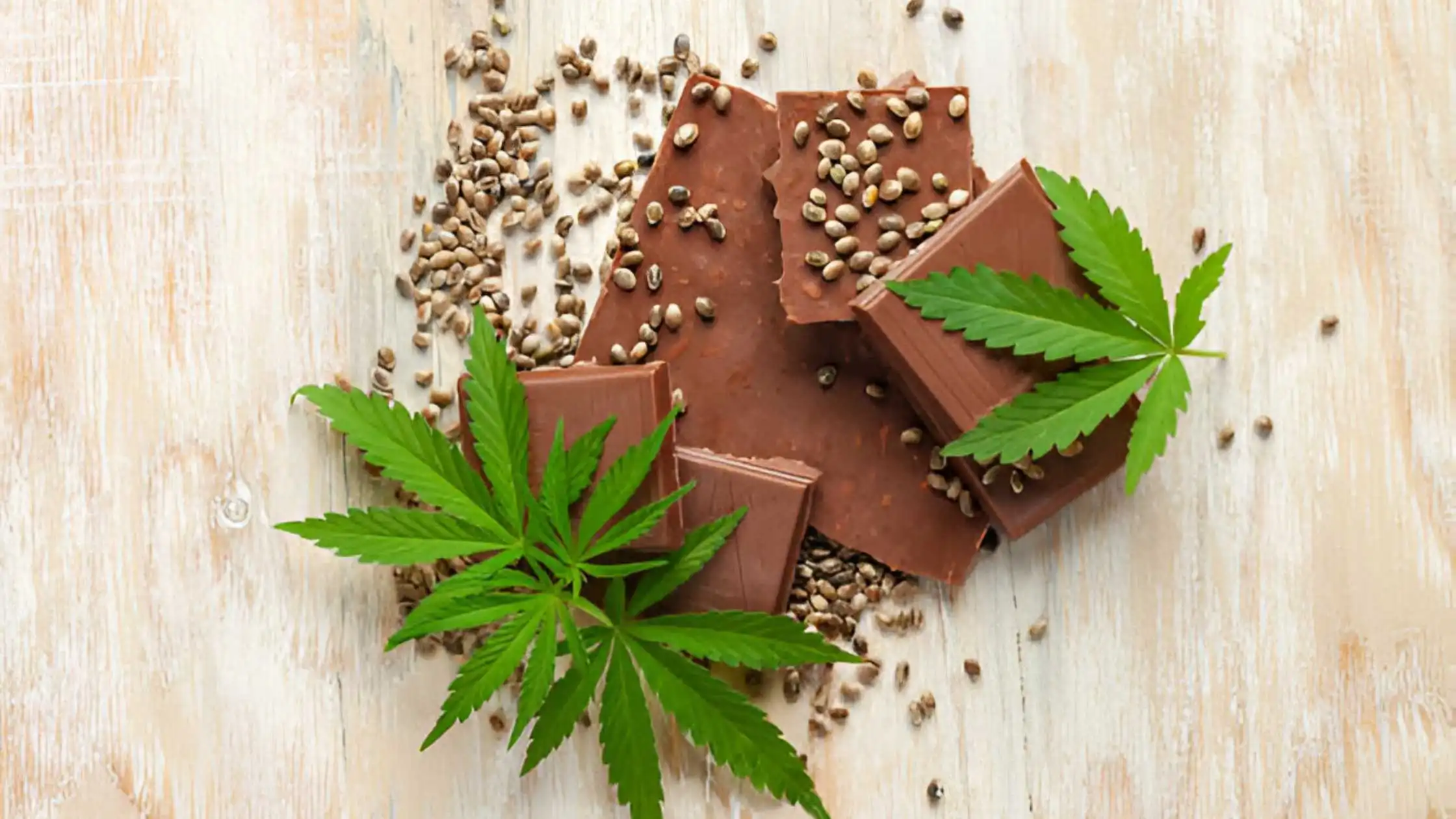Extraction companies such as Harold Jarboe’s Tennessee Homegrown started converting CBD to delta-8 THC after the 2018 U.S. Farm Bill was passed.
When Harold Jarboe told his partners at Columbia River Cannabis in 2014 that he was leaving the licensed Washington state marijuana company to grow hemp in Tennessee, they thought he was crazy.
“They thought I’d lost my mind,” Jarboe recalled. And for a while, it seemed as if they were right.
Jarboe launched Tennessee Homegrown in 2016 and toiled to build it into a well-respected manufacturer of hemp-derived CBD products. He invested in premium genetics, operated leanly and, most importantly, tested his products at a third-party lab before sending them to retailers. The company was profitable but struggling to survive.
Then, in early 2020, retailers started asking for delta-8 THC.
Jarboe knew D-8 occurred naturally in cannabis in miniscule amounts. However, the plant did not produce enough D-8 for an economically feasible harvest, so the requests surprised him.
“No one in the industry saw this coming 2½ years ago,” Jarboe told MJBizMagazine. “Labs didn’t see it, processors didn’t, and store owners didn’t.”
With his interest piqued by the requests, Jarboe researched and found that Israeli cannabis scientist Raphael Mechoulam had written in 2005 about converting CBD isolate and distillate into delta-8 THC. At the time, both hemp derivatives were extremely expensive, making the conversion to D-8 commercially unfeasible.
Loophole turned-dam break
That changed dramatically with the passage of the 2018 U.S. Farm Bill, which pulled the rug from underneath CBD prices.
When Congress passed the Farm Bill, hemp cultivators and processors were sitting on loads of CBD oil that, until then, was hard to move in a marketplace limited by a lack of federal clarity on CBD. The new regulations undammed that supply, unleashing CBD distillate along with a new wave of entrepreneurs looking to enter the industry.
Jarboe said CBD prices dropped from $25,000 per kilogram to as little as $500 after the Farm Bill’s passage. Suddenly, converting CBD into delta-8 THC was economically feasible.
“One of the reasons this didn’t happen earlier is because anytime you have to do a conversion, it’s an added expense. When CBD prices went through the floor, this raw material became cheap,” Jarboe explained. “Previously, the barrier to doing this had been cost. And now that cost barrier was gone.”
In its effort to legalize and regulate hemp-derived CBD, the 2018 Farm Bill stated that any cannabinoid derived from hemp—defined as cannabis containing less than 0.3% delta-9 THC—was a legal product.
Yet by specifying delta-9, the bill’s authors unwittingly left other cannabinoids outside the realm of regulation.
Unintended consequences
“Unfortunately, nobody dealing with this legislation knew what delta-8 was. We were all familiar with delta-9, and the Farm Bill was written so that hemp was defined as less than 0.3% delta-9 THC,” said Jonathan Miller, an attorney with the U.S. Hemp Council who helped draft the bill. “Folks were innovative and … have been able to take advantage of a loophole because the legislation doesn’t ban delta-8; it only bans delta-9 over a certain amount.”
The news was music to the ears of hemp executives such as Jarobe, who suddenly “had huge stockpiles” of CBD with diminishing value.
Jarboe soon developed his process for converting CBD into delta-8, did several trial runs to dial in his formulations and hired a third-party lab to test the products.
“We had store owners asking us for the product. It’s that simple. If you’ve got stores calling you saying, ‘Look, if you put this product under your label, we can sell it because people trust your brand.’ Well, that’s how we got into it,” Jarboe explained.
Now, Tennessee Homegrown is thriving, and Jarboe gives much credit to his D-8 pivot.
“Maybe it’s no longer the season for hemp as we knew it,” Jarboe wrote in a September 2021 blog post. “The world had changed, and we had to adapt or die.”
Another side of the coin
While D-8’s popularity is boosting the bottom lines of hemp farmers and CBD companies, it’s causing worries among traditional marijuana cultivators, manufacturers and retailers—as well as regulators and lawmakers.
“Any cannabinoid that can cause impairment should be regulated like delta-9 until we know more about it,” said Morgan Fox, a former spokesman for the National Cannabis Industry Association, who took a job with NORML after this interview. “In the meantime, I think states, as well as the federal government, need to start thinking about ways in which to bring novel and minor cannabinoids into the regulated market in a way that protects consumer safety but also respects the huge burdens that licensed cannabis producers have faced and make sure that they’re not being cut out.”
Jim Makoso, CEO of Washington state extraction company Flowe Technology, said safety is his No. 1 concern about delta-8 THC. He would like to see D-8 regulated like D-9, including third-party testing.
“Regarding consumer safety, at least some regulation should be required around the QC (quality control) standards,” Makoso said. “Pesticide testing, residual solvent testing, potency testing, and mycotoxins would be an excellent place to start.”
Disclaimer: https://mjbizdaily.com/delta-8-debate/





